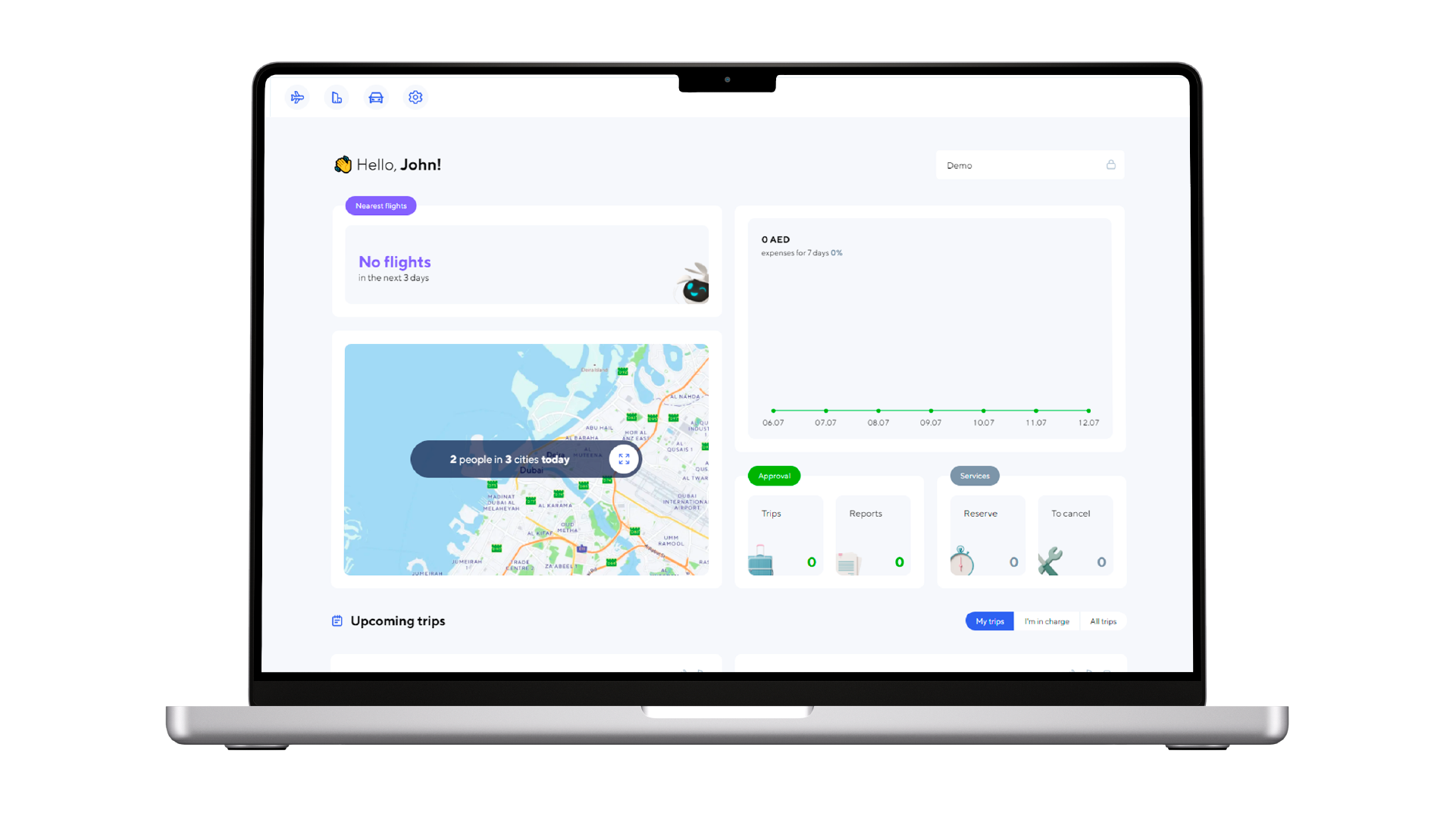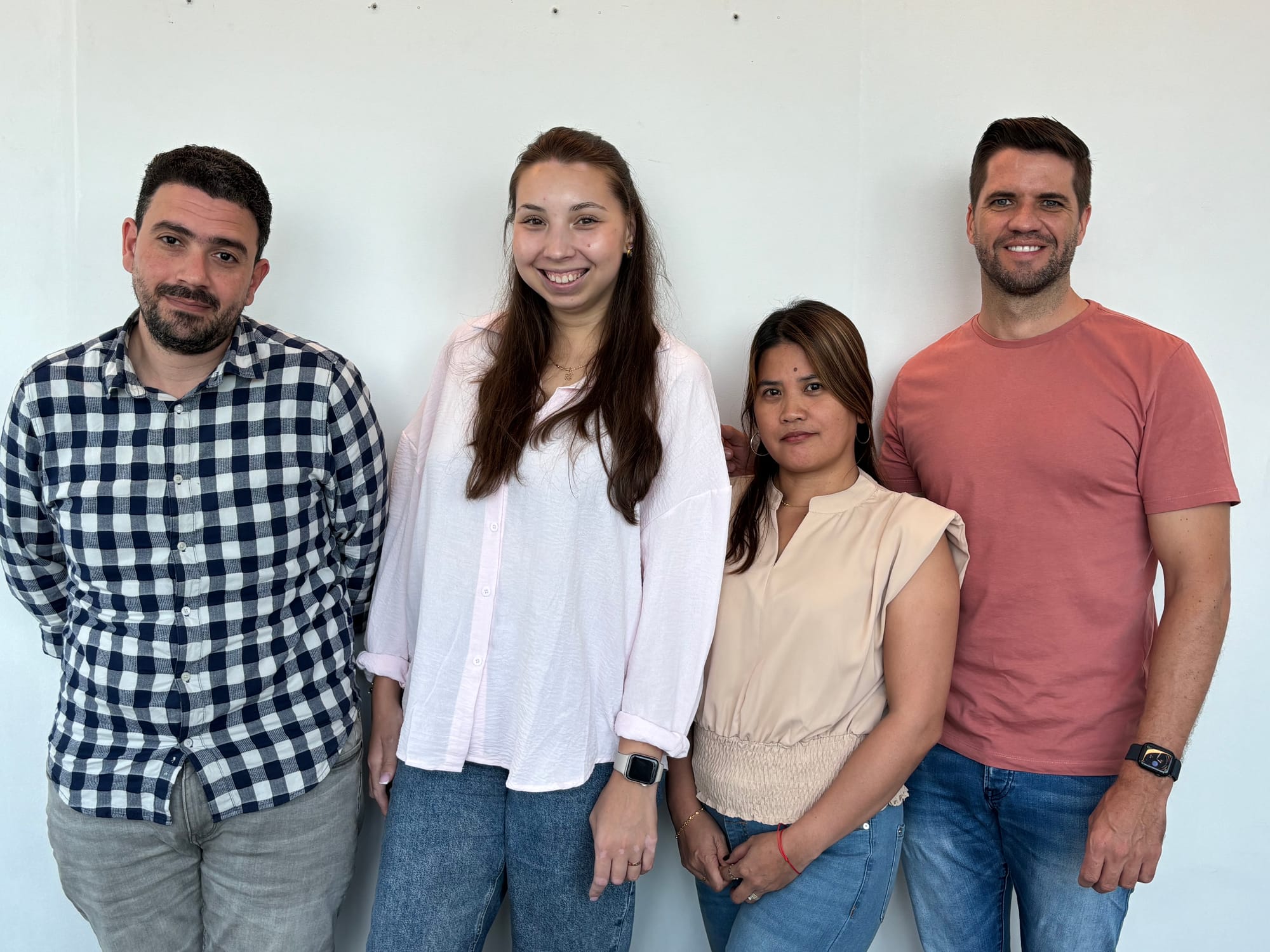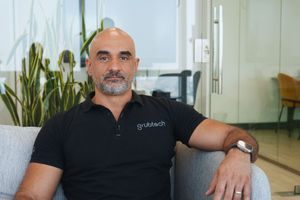Stanislav Klyuy, the Chief Commercial Officer and Director of International Business Development at Tumodo is at the forefront of transforming the MENA business travel market. With an Associate Business degree in Hospitality & Tourism Management from Horry Georgetown Technical College, Stanislav has played a pivotal role in the company’s rapid growth since its founding in 2021. Tumodo’s intuitive platform enables businesses to streamline their travel booking processes, resulting in an average savings of 35% on travel expenses. In this interview, Stanislav shares insights into Tumodo's inception, market opportunities, and future expansion plans.
What market opportunities convinced you to build Tumodo, and what was your role in its inception?
As a travel enthusiast with a vision to create a product that could make a real impact, we closely observed how companies in regions like Europe were leading the charge with digitalization and automation. In contrast, this trend was just beginning to emerge in the MENA region, where the focus is now shifting toward automating and digitalizing processes across industries. We identified a gap in the market with local providers who, while offering products, had not fully adapted them to meet the region’s growing demand for automation. This presented a clear opportunity, and that’s when we decided to build Tumodo, tailored to address this need. Dubai, as you mentioned, is a diverse and highly competitive market, making it the perfect environment to drive innovation and bring our vision to life.
Dubai is a competitive travel market. Having launched recently in 2022, what entry barriers did you face? How did you overcome them?
You’re right. Dubai, and the UAE in general, is a truly multinational and multiregional market, which makes it incredibly diverse. This diversity was a major factor in our decision to enter the market. We saw Dubai as an ideal starting point, as it offers a unique mix of companies—some with strong Western influences and others that remain quite local, only now beginning to embrace digitalization. One of the biggest challenges we faced was product localization. We needed to ensure that our solutions met the specific legal and business requirements of the region. For example, we had to completely overhaul our accounting system to align with local regulations. This kind of market-specific adaptation is something we tackle with every new market we enter.
How did you go about that journey?
We launched quickly because we already understood the technology, but it took nearly a year to fully localize the product and the team. Many employees came from traditional travel backgrounds, so we had to focus on educating them, as well as local companies, about the future of travel automation. While individuals are comfortable booking personal trips online, businesses haven’t adopted automation as readily. Our goal is to change that mindset.
Most companies use automated systems like CRMs, but travel still lags, either due to a lack of awareness or reliance on outdated solutions from traditional agencies. As an AI-driven company specializing in travel technology, we ensure our systems are fully automated and digitalized, providing seamless solutions tailored to client needs.
Tumodo press releases mention wanting to achieve a 100% adoption rate. What does 100% mean for you?
We aim for a 100% adoption rate, which means fully transitioning companies from traditional business travel management methods to complete automation. Traditionally, travel arrangements involved back-and-forth emails between employees, travel coordinators, and agencies, a process that could take days. Tumodo eliminates this by integrating with companies' HR and accounting systems via API technology. This allows employees to book travel and submit expenses through our platform, with dynamic policy management ensuring compliance with company budgets.

For companies, 100% adoption means automating every step of the travel process, from booking to expense reporting, streamlining approvals and syncing directly with accounting systems. This reduces travel expenses by up to 35%. We saw a gap in the UAE market, where many large companies still rely on traditional methods, and local providers weren’t able to meet the demand for automation. Tumodo fills this gap by offering a fully digital and automated solution.
Tumodo claims to reduce travel-related expenses by 35% for businesses. What metrics did you use to arrive at this number? Can we have some substantial examples of clients who were able to save 35% or more on travel costs?
This practice is already well-established in European and North American markets, where companies have published reports showing the impact of transitioning from traditional travel management to fully online systems. They calculated the time employees spent on organizing travel and how many accountants were needed to process expenses, then worked out an average savings rate. This is how we arrived at the figure of up to 35% savings when moving from fully traditional to fully automated processes.
The companies that benefit the most are large-scale businesses with thousands of business trips annually—some with travel budgets of up to $200 million a year. For these companies, which still rely on traditional methods, going fully automated can save a significant amount of time and resources, allowing them to focus on other productive activities. That's where the real impact is seen.
What strategy are you implementing to achieve your goal of expanding to 25 additional countries by 2026, and which regions are these countries located in?
It's a very optimistic and, I’d say, aggressive ambition. We began in the MENA region, leveraging the shift towards digitalization and automation. Currently, we have operations in the UAE, India, Hong Kong, and recently launched in Saudi Arabia. Next, we plan to deepen our presence in the MENA region and enter the European Union, followed by expansion into Africa, South America, and North America.
Our focus is on scaling teams and automating internal processes, which streamlines our global expansion. The main challenge we face is localizing our product to meet regional requirements. In India, our office is fully operational with active clients, and we're in talks with large companies recognizing the benefits of our product. Adaptability and automation are central to our growth strategy.
You opened an office in India recently. What factors led you to prioritize this market in your expansion pipeline, considering the intense competition in the region?
We looked at two key aspects. First, the economy. India is one of the fastest-growing economies in the world, with a business travel budget that is estimated to exceed $40 billion by the end of this year. By 2025, this figure is expected to grow to $60 billion, an increase of nearly 50%. Yes, there's intense competition, but the demand in the market is even higher, which is its main attraction. However, it’s important to note that India is a very challenging market with strict local requirements, including accounting legislation and legal complexities. This made it a priority for us.
We knew India was a key market for two reasons: the scale of the business and its focus on automation and digitalization.
Larger companies in India are eager to automate processes because they see it as the future, and we’re entering this space with confidence. Despite the presence of local competitors, we believe we can compete effectively.
As a travel business, Tumodo places a lot of emphasis on environmental sustainability. Can you provide some insights into your sustainability policies and clients’ reception to them? How do you track the impact of your efforts?
We prioritize environmental sustainability by offering clients detailed analytics through our platform, which calculates CO2 emissions from flights, hotels, and transfers. These reports provide insights into emissions, and our system recommends ways to optimize travel policies, such as choosing short-haul or direct flights. As technology advances, we aim to offer even more detailed information and sustainability programs. The focus is on providing clients with the data they need to make informed decisions. For example, a client with 1,000 business trips can review the CO2 emissions generated and use that information to engage with specialized sustainability programs. Ultimately, clients must act on the data to improve their sustainability efforts.
In the last 2 years, what has your revenue growth been? How many clients have you acquired in MENA? What is your ARPU?
Over the past two years, our business has grown nearly fivefold. While we track metrics like client numbers, revenue, and business volume, we place a strong emphasis on the adoption rate of our platform. Initially, clients were hesitant to adopt digital travel solutions, but now nearly every client shows interest.
Those who were resistant in the first year have seen the benefits of our online solutions, with adoption rates increasing from 10-15% to nearly 50-60%.
This shift shows the success of our efforts to educate the market. Many companies now approach us seeking full automation from the start, rather than gradual implementation. We currently have over 200 clients, mostly large enterprises, and though the implementation process can take time, clients are starting to see significant benefits.
The travel industry is embracing technological advancements. How is Tumodo leveraging data analytics and AI to improve user experience and operational efficiency? What percentage of your annual budget goes into R&D for future-proof technology, given your focus on AI-powered travel solutions?
We don’t allocate a separate budget specifically for AI, as our entire system is developed in-house by a team of skilled IT specialists. Our R&D budget is primarily reflected in the salaries of our developers. While we invest heavily in research and explore new opportunities, we prioritize keeping everything in-house rather than relying on third-party solutions. This approach allows us to maintain a system that is simple, dynamic, and easily adaptable to different markets.
As part of our expansion strategy to reach 25 countries in the next two years, we minimize the use of external systems and focus on building as much in-house as possible to ensure flexibility and quick adjustments.
How do you ensure that Tumodo's operations remain agile and responsive to the dynamic market? How do you incorporate customer feedback into your operations?
Our operational model ensures that any issues clients encounter with hotels or flights are addressed by our support staff, who are also users of our system. This means the first feedback we receive comes from our own employees, allowing us to identify areas for improvement quickly. Each time we expand to a new region or integrate new suppliers or technology, our staff provides initial feedback on necessary enhancements.
In addition to internal feedback, we actively collect input from clients through various communication channels. We then discuss this feedback internally with our product and IT teams, evaluating whether proposed changes are truly beneficial or just small, non-scalable features. Once improvements are prioritized, we conduct thorough research. For instance, we attend IT events like GITEX to explore new technologies that can improve our services and ensure a smooth, frustration-free user experience.
A key motivation for me joining this industry was my firsthand experience of how seamless business travel processes can be, and my goal is to provide that same level of efficiency to all our clients.
What trends do you see shaping the future of the corporate travel industry, and how is Tumodo preparing to address them?
The future of corporate travel is being shaped by two key trends. First is digitalization, which is becoming essential across industries, including travel. Services like Uber, online banking, and food delivery are rapidly evolving, and countries like Saudi Arabia, with its Vision 2030 plan, are heavily focused on digital transformation. Companies that fail to keep up with this shift will struggle.
The second trend is the rise of "multi-leg trips," where travelers focus on multiple stops instead of a single destination. AI technology plays a crucial role here, analyzing traveler behavior and historical data to suggest the best routes within company policies, providing seamless, door-to-door travel solutions. This is particularly beneficial for complex logistics and unfamiliar destinations, similar to Google Maps but integrated into corporate travel systems.
You’re expanding the Tumodo team in various locations. At this critical point in your journey, what do you look for while making hiring decisions?


When hiring, we prioritize individuals who understand that change is inevitable and can adapt to new technologies. While a background in the travel industry is helpful, the most important quality is being "teachable" and open to learning new approaches. As Tumodo is growing rapidly, we also seek ambitious people who see the opportunity to grow with the company by contributing to its success. There’s significant potential for newcomers to advance as we continue to expand.
Vladimir Kokorin, Co-founder of Tumodo, has stated that the company aims to reach an annualized turnover of $123 million by the end of 2025. How do you plan to achieve this goal, and what is your long-term vision for Tumodo?
To achieve our goal, Tumodo's strategy focuses on rapid expansion into new markets and targeting companies that will benefit most from our services. This requires strong internal processes, especially in sales, to qualify companies that are ready for our platform and avoid those that are not yet compatible. We prioritize analyzing potential partners thoroughly to drive growth.
Next year, we plan to expand further in established regions like India, the UAE, Saudi Arabia, and Hong Kong, before entering new markets, including the European Union.
Our long-term vision is to become a leading global online travel management platform, with a presence in 25 countries across five continents. We aim to influence the business travel industry by helping companies optimize their travel processes and positioning Tumodo as the future of business travel.
Watch the interview:
Also Read:

















